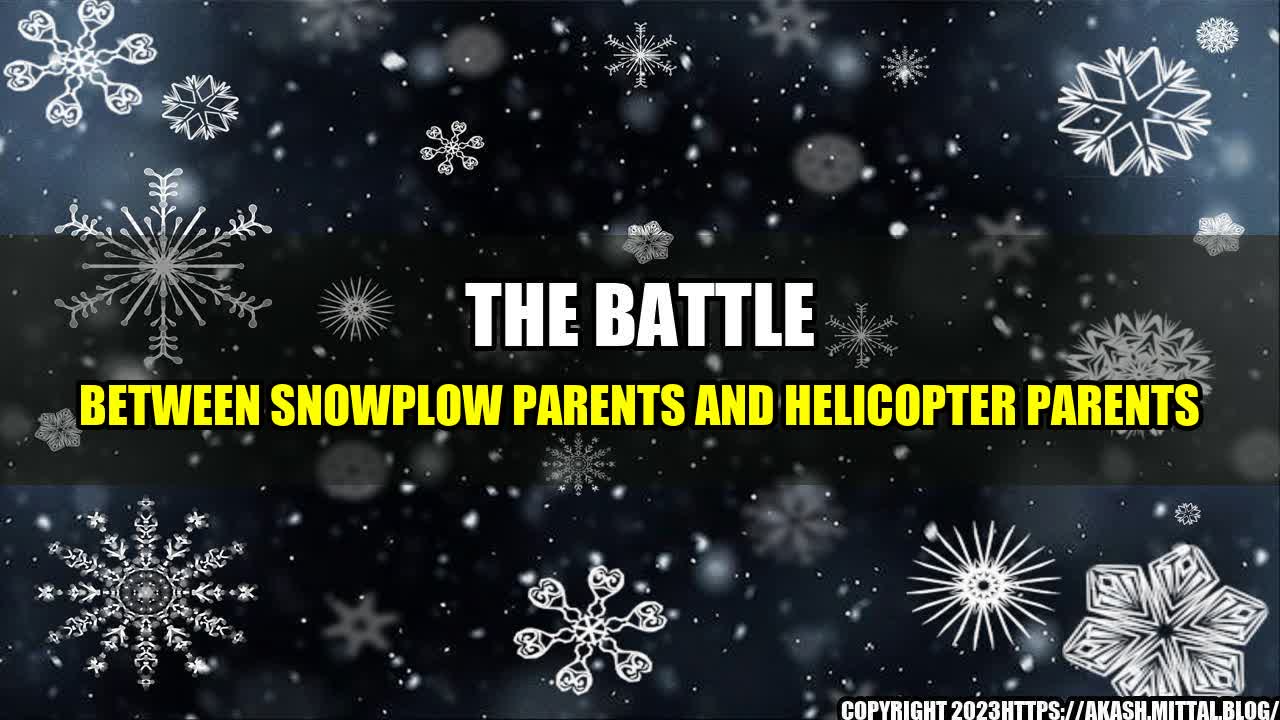
As a new mother, I always want what's best for my child. I want him to succeed in life and avoid any hardships. But, where do I draw the line between being supportive and being overprotective?
This is the question that many parents are grappling with today. In recent years, there has been a rise in both snowplow and helicopter parenting. But, what are they, and how are they different?
Snowplow parenting is the practice of clearing obstacles out of a child's way. These parents are determined to give their children every advantage in life. They intervene on their child's behalf and make sure that they never experience failure. Snowplow parents do everything they can to ensure their child's success – from scheduling tutors to bribing college officials.
For example, take the story of a snowplow parent, whose child received a failing grade on a test. Rather than letting the child deal with the result, the parent hired a tutor to make sure that they never fail again. While the child may have seen an improvement in their grades, they never learned the valuable lesson that failure is a part of life.
Helicopter parenting is when parents hover over their children all the time. They're always watching and ready to jump in at the first sign of trouble. These parents micromanage every aspect of their child's life. They're often anxious and overprotective, which can cause their child to become dependent on them.
For example, a helicopter parent may always be checking in on their child's social life, making sure that they're never left to their own devices. While they may think that they're doing their child a favor by being so involved, they're actually preventing their child from learning how to make their own decisions and solve problems.
The truth is, neither snowplow parenting nor helicopter parenting is ideal. Both are extreme and can have negative consequences on a child's development. The best approach to parenting is somewhere in the middle.
Here are three tips on how to find that middle ground:
While it can be hard to find the right balance between being supportive and overprotective, it's important to remember that parenting is a learning process. There will be times when you make mistakes, but the most important thing is to listen to your child and be there for them.
The battle between snowplow parenting and helicopter parenting will continue to rage on. But, it's important to remember that neither extreme is sustainable or healthy. Finding the middle ground is key to raising happy, healthy, independent children.
As a parent, it's important to recognize the signs of both snowplow and helicopter parenting and take steps to avoid falling into those traps. By allowing your child to experience failure, encouraging independence, and being supportive, you can raise a child who is capable of handling life's challenges.
Parenting
Curated by Team Akash.Mittal.Blog
Share on Twitter Share on LinkedIn